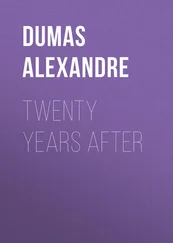In fact, the procession arrived, in safety at Notre Dame, at the front gate of which all the clergy, with the coadjutor at their head, awaited the king, the queen and the minister, for whose happy return they chanted a Te Deum.
As the service was drawing to a close a boy entered the church in great excitement, ran to the sacristy, dressed himself quickly in the choir robes, and cleaving, thanks to that uniform, the crowd that filled the temple, approached Bazin, who, clad in his blue robe, was standing gravely in his place at the entrance to the choir.
Bazin felt some one pulling his sleeve. He lowered to earth his eyes, beatifically raised to Heaven, and recognized Friquet.
"Well, you rascal, what is it? How do you dare to disturb me in the exercise of my functions?" asked the beadle.
"Monsieur Bazin," said Friquet, "Monsieur Maillard—you know who he is, he gives holy water at Saint Eustache―"
"Well, go on."
"Well, he received in the scrimmage a sword stroke on the head. That great giant who was there gave it to him."
"In that case," said Bazin, "he must be pretty sick."
"So sick that he is dying, and he wants to confess to the coadjutor, who, they say, has power to remit great sins."
"And does he imagine that the coadjutor will put himself out for him?"
"To be sure; the coadjutor has promised."
"Who told you that?"
"Monsieur Maillard himself."
"You have seen him, then?"
"Certainly; I was there when he fell."
"What were you doing there?"
"I was shouting, ’Down with Mazarin!’ ’Death to the cardinal!’ ’The Italian to the gallows!’ Isn’t that what you would have me shout?"
"Be quiet, you rascal!" said Bazin, looking uneasily around.
"So that he told me, that poor Monsieur Maillard, ’Go find the coadjutor, Friquet, and if you bring him to me you shall be my heir.’ Say, then, Father Bazin—the heir of Monsieur Maillard, the giver of holy water at Saint Eustache! Hey! I shall have nothing to do but to fold my arms! All the same, I should like to do him that service—what do you say to it?"
"I will tell the coadjutor," said Bazin.
In fact, he slowly and respectfully approached the prelate and spoke to him privately a few words, to which the latter responded by an affirmative sign. He then returned with the same slow step and said:
"Go and tell the dying man that he must be patient. Monseigneur will be with him in an hour."
"Good!" said Friquet, "my fortune is made."
"By the way," said Bazin, "where was he carried?"
"To the tower Saint Jacques la Boucherie;" and delighted with the success of his embassy, Friquet started off at the top of his speed.
When the Te Deum was over, the coadjutor, without stopping to change his priestly dress, took his way toward that old tower which he knew so well. He arrived in time. Though sinking from moment to moment, the wounded man was not yet dead. The door was opened to the coadjutor of the room in which the mendicant was suffering.
A moment later Friquet went out, carrying in his hand a large leather bag; he opened it as soon as he was outside the chamber and to his great astonishment found it full of gold. The mendicant had kept his word and made Friquet his heir.
"Ah! Mother Nanette!" cried Friquet, suffocating; "ah! Mother Nanette!"
He could say no more; but though he hadn’t strength to speak he had enough for action. He rushed headlong to the street, and like the Greek from Marathon who fell in the square at Athens, with his laurel in his hand, Friquet reached Councillor Broussel’s threshold, and then fell exhausted, scattering on the floor the louis disgorged by his leather bag.
Mother Nanette began by picking up the louis; then she picked up Friquet.
In the meantime the cortege returned to the Palais Royal.
"That Monsieur d’Artagnan is a very brave man, mother," said the young king.
"Yes, my son; and he rendered very important services to your father. Treat him kindly, therefore, in the future."
"Captain," said the young king to D’Artagnan, on descending from the carriage, "the queen has charged me to invite you to dinner to–day—you and your friend the Baron du Vallon."
That was a great honor for D’Artagnan and for Porthos. Porthos was delighted; and yet during the entire repast he seemed to be preoccupied.
"What was the matter with you, baron?" D’Artagnan said to him as they descended the staircase of the Palais Royal. "You seemed at dinner to be anxious about something."
"I was trying," said Porthos, "to recall where I had seen that mendicant whom I must have killed."
"And you couldn’t remember?"
"No."
"Well, search, my friend, search; and when you have found, you will tell me, will you not?"
"Pardieu!" said Porthos.
90. Conclusion.
On going home, the two friends found a letter from Athos, who desired them to meet him at the Grand Charlemagne on the following day.
The friends went to bed early, but neither of them slept. When we arrive at the summit of our wishes, success has usually the power to drive away sleep on the first night after the fulfilment of long cherished hopes.
The next day at the appointed hour they went to see Athos and found him and Aramis in traveling costume.
"What!" cried Porthos, "are we all going away, then? I, so, have made my preparations this morning."
"Oh, heavens! yes," said Aramis. "There’s nothing to do in Paris now there’s no Fronde. The Duchess de Longueville has invited me to pass a few days in Normandy, and has deputed me, while her son is being baptized, to go and prepare her residence at Rouen; after which, if nothing new occurs, I shall go and bury myself in my convent at Noisy–le–Sec."
"And I," said Athos, "am returning to Bragelonne. You know, dear D’Artagnan, I am nothing more than a good honest country gentleman. Raoul has no fortune other than I possess, poor child! and I must take care of it for him, since I only lend him my name."
"And Raoul—what shall you do with him?"
"I leave him with you, my friend. War has broken out in Flanders. You shall take him with you there. I am afraid that remaining at Blois would be dangerous to his youthful mind. Take him and teach him to be as brave and loyal as you are yourself."
"Then," replied D’Artagnan, "though I shall not have you, Athos, at all events I shall have that dear fair–haired head by me; and though he’s but a boy, yet, since your soul lives again in him, dear Athos, I shall always fancy that you are near me, sustaining and encouraging me."
The four friends embraced with tears in their eyes.
Then they departed, without knowing whether they would ever see each other again.
D’Artagnan returned to the Rue Tiquetonne with Porthos, still possessed by the wish to find out who the man was that he had killed. On arriving at the Hotel de la Chevrette they found the baron’s equipage all really and Mousqueton on his saddle.
"Come, D’Artagnan," said Porthos, "bid adieu to your sword and go with me to Pierrefonds, to Bracieux, or to Du Vallon. We will grow old together and talk of our companions."
"No!" replied D’Artagnan, "deuce take it, the campaign is going to begin; I wish to be there, I expect to get something by it."
"What do you expect to get?"
"Why, I expect to be made Marechal of France!"
"Ha! ha!" cried Porthos, who was not completely taken in by D’Artagnan’s Gasconades.
"Come my brother, go with me," added D’Artagnan, "and I will see that you are made a duke!"
"No," answered Porthos, "Mouston has no desire to fight; besides, they have erected a triumphal arch for me to enter my barony, which will kill my neighbors with envy."
"To that I can say nothing," returned D’Artagnan, who knew the vanity of the new baron. "Then, here’s to our next merry meeting!"
Читать дальше
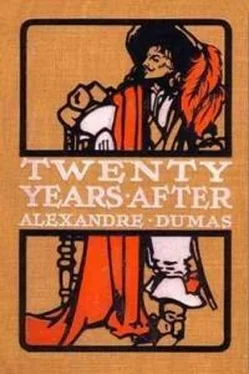
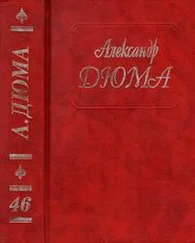
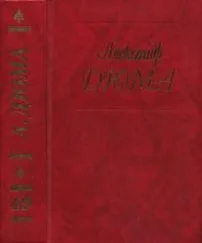
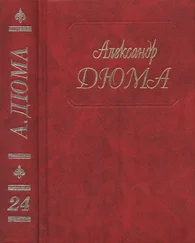

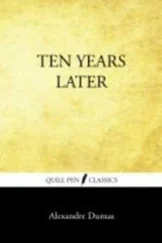
![О Генри - Через двадцать лет [After Twenty Years]](/books/415401/o-genri-cherez-dvadcat-let-after-twenty-years-thumb.webp)



